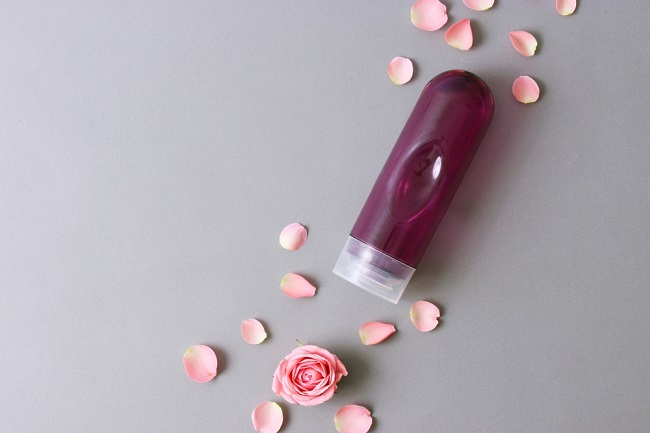Be careful, this lubricant material can be harmful to the vagina
When the vagina does not produce enough natural lubricant for sexual intercourse, many women end up using artificial lubricants. However, not all lubricants are safe to use, yes. If choose the wrong one, the vagina can experience irritation or inflammation, you know.
In fact, when you are sexually aroused, mucus production will increase and the vagina will naturally be lubricated. However, hormonal changes, menopause, consumption of certain drugs, smoking habits, or an autoimmune disease such as Sjogren's syndrome, can reduce natural lubricants and make the vagina dry.

If the vagina is dry, sex that you have with your partner can hurt more. In fact, in some conditions, the friction that occurs can irritate the vagina.
Well, in these conditions you need artificial lubricants to prevent irritation due to friction during penetration. Not only lubricating the vagina, sexual activity without pain will also increase sexual arousal and pleasure
Lubricants are available in various choices based on their basic ingredients, ranging from water, silicone, to oil. However, not all the ingredients contained in this female lubricant are safe to use. You have to be selective before buying so as not to trigger vaginal disturbances.
Women's Lubricating Materials That Should Be Avoided
Users of artificial lubricants certainly agree that this product can reduce discomfort during sexual intercourse due to vaginal dryness.
However, when choosing artificial lubricants, there are several ingredients that should be avoided because they contain chemical additives that can disrupt the balance of microorganisms in the vagina, and can even trigger irritation.
The following will describe in more detail various dangerous lubricant ingredients that you should avoid when buying lubricants:
1. Glycerin
Female lubricants containing glycerin, especially those that are not diluted, are known to cause damage to vaginal tissue, thereby triggering inflammation.
In addition, research also shows that glycerin can inhibit the growth of Lactobacillus spp. which is good bacteria in the vagina, so it can trigger yeast infections.
In fact, some Lactobacillus strains, such as L. crispatus or L. gasseri, tasked with protecting the vagina from pathogenic attacks, including recurrences that cause sexually transmitted infections (STI).
2. Parabens
Parabens are popularly used as preservatives. However, the paraben content in vaginal lubricants has been shown to irritate the mucous lining of the vagina. Not only that, exposure to parabens is thought to trigger fertility problems and endocrine disorders
3.Chlorhexidine gluconate
Lubricants containing chlorhexidine gluconate are proven to kill many strains of Lactobacillus, so that the balance of microorganisms in the vagina is disrupted. In fact, studies show that chlorhexidine gluconate has stronger antimicrobial properties than parabens.
4. Nonoxynol-9
Although nonoxynol-9 is widely used as a spermicide or ingredient that can inhibit sperm movement, it is not recommended for use in female lubricants.
Nonxynol-9 has antimicrobial properties that inhibit the growth of Lactobacillus spp., thereby disrupting the balance of flora in the vagina. Well, this can also increase the risk of sexually transmitted infections in women.
5. Propylene glycol
Actually, propylene glycol is contained in many cosmetic products. However, use in the vagina as a lubricant is not recommended, because it can trigger irritation. Propylene glycol can also cause vaginal tissue damage
In addition to the ingredients above, avoid artificial lubricants with added fragrances or dyes, because they can cause skin irritation. You also shouldn't use lubricants with added flavors, because these products contain sugar which actually triggers vaginal yeast infections
As a safe choice, you can buy the following types of female lubricants:
- Water based lubricant without glycerin content
- Silicone-based lubricant
- Oil-based lubricants, such as coconut oil, mineral oil, or petroleum jelly
Another thing that is also important to consider in choosing female lubricant products is the pH of the product. Ideally, the pH of lubricating products should resemble the pH of healthy vaginal fluids, which is around 3.8–4.5. This aims to keep the number of good bacteria in the vagina balanced
The use of artificial lubricants can indeed increase comfort and reduce friction during penetration. However, make sure the lubricant product you choose does not contain the hazardous ingredients mentioned above, OK.
If the lubricant you use causes side effects, such as difficulty breathing, rash, itching, and swelling of the face, tongue or throat, immediately consult a doctor to get the appropriate treatment.
Label : Health
Comments
Post a Comment